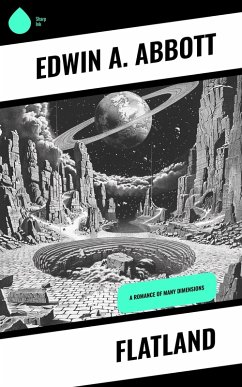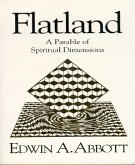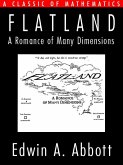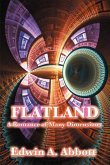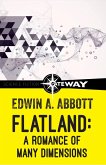In "Flatland," Edwin A. Abbott presents a satirical and thought-provoking exploration of dimensions, societal hierarchies, and the limitations of human perception. Set in a two-dimensional world inhabited by geometric shapes, the narrative unfolds through the eyes of a humble Square who embarks on a journey of self-discovery and enlightenment. The book's innovative narrative style cleverly employs mathematical metaphors to critique the rigid social stratifications of Abbott's Victorian England, while also inviting readers to ponder the nature of reality and existence beyond their immediate understanding. Abbott's prose deftly balances humor with philosophical inquiry, creating an allegorical tale that resonates on multiple levels. Edwin A. Abbott, a noted theologian, educator, and author, was deeply influenced by the intellectual currents of his time, particularly the burgeoning fields of mathematics and science. His background in teaching and a keen interest in social justice are reflected in "Flatland," where he challenges the viewer's perspective not just in terms of geometry but also in societal norms and prejudices. Abbott's own experiences as a devout Unitarian influenced his thoughts on conformity and enlightenment, enriching the text with layers of meaning. I highly recommend "Flatland" to readers who appreciate a fusion of imaginative storytelling and intellectual rigor. This timeless work not only entertains but also invites reflection on the boundaries of human understanding and the importance of open-mindedness in a world rife with established norms. For anyone interested in the intersection of mathematics, philosophy, and social commentary, Abbott's classic remains an essential and enlightening read.
Dieser Download kann aus rechtlichen Gründen nur mit Rechnungsadresse in A, B, BG, CY, CZ, D, DK, EW, E, FIN, F, GR, HR, H, IRL, I, LT, L, LR, M, NL, PL, P, R, S, SLO, SK ausgeliefert werden.

